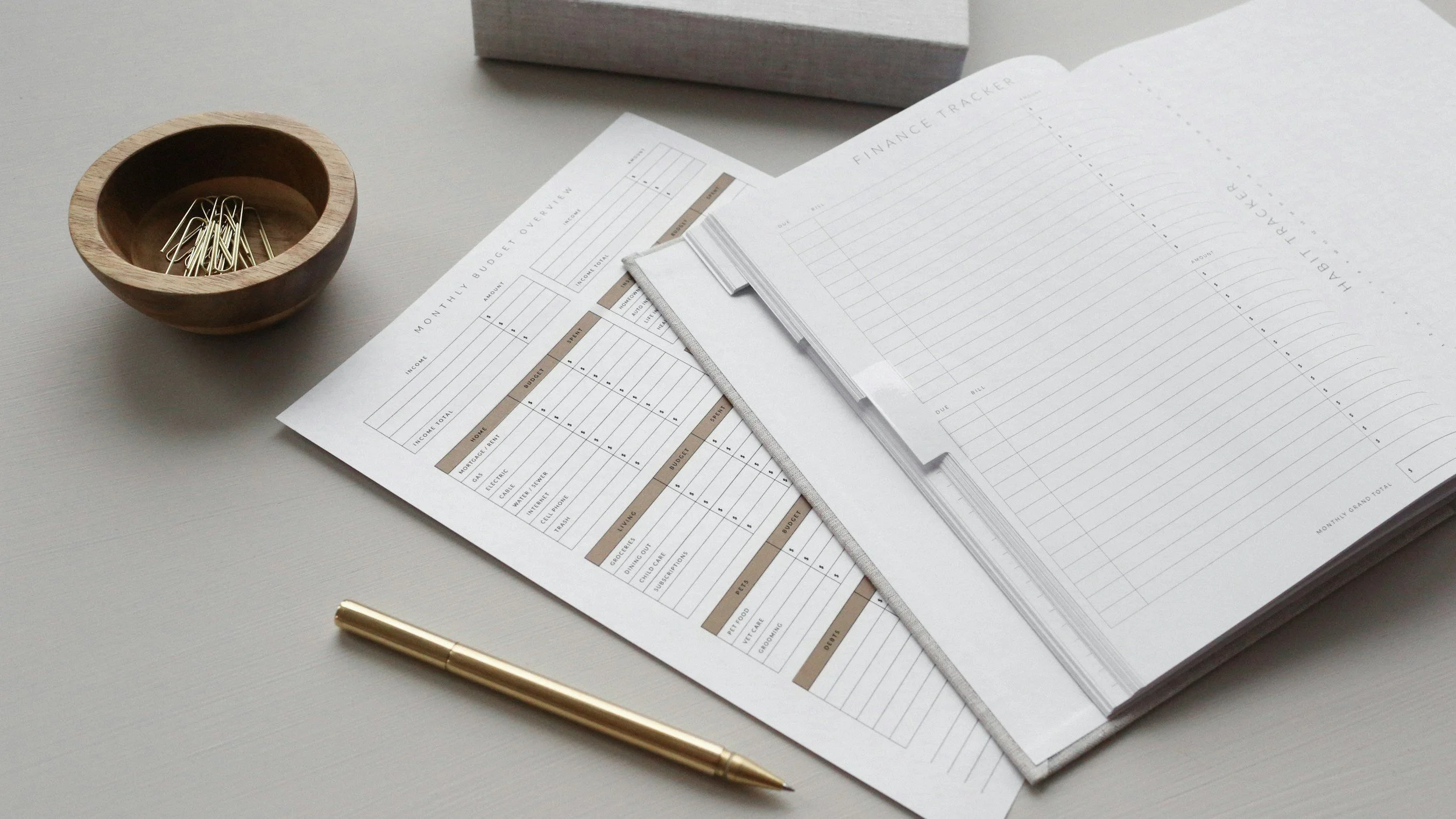Blog

Cash Flow Mistakes Business Owners Make and How to Avoid Them
Cash flow is one of the biggest challenges business owners face, and most issues come from a handful of habits we see over and over again. The good news is that these mistakes are easy to fix once you understand what is causing them. Here are the most common cash flow problems and how to avoid them.

When to Move from DIY Bookkeeping to Professional Support
Many business owners start out doing their own bookkeeping. It is practical in the beginning and helps you stay close to your numbers. However, as your business grows, there comes a point when DIY bookkeeping begins to slow you down.
These are the same reasons clients come to us again and again. We see the same patterns repeat, and they are usually a clear sign that it is time to bring in professional support.

How Your Personal Finances Impact Your Business Success
It’s easy to think of your business and personal finances as two separate worlds, but the truth is, they’re deeply connected. The way you manage money in your personal life often sets the tone for how you handle your business finances.

How to Delegate Effectively and Actually Save Time
As business owners, we’ve all said it... “It’s just easier if I do it myself.” But the truth is, learning how to delegate effectively isn’t about giving up control. It’s about freeing up time to focus on what truly grows your business.

Financial Tips for the Holiday Season for Small Businesses
The holiday season is here which means it’s time to balance celebration with smart financial planning. Here are a few financial tips to help you finish strong and step into 2026 with confidence.

Catch-Up or Clean-Up. Which Bookkeeping Service Do You Need?
Not all bookkeeping problems are the same, and the solution depends on your situation. This blog discusses how to tell which service fits your business best.

Why You Need to Clean Up Your Chart of Accounts
Your chart of accounts is the foundation of your bookkeeping. It organizes all your income, expenses, assets, and liabilities into categories. When it’s set up properly, you get clear financial reports that make decision-making easier.

Introduction to Bookkeeping
Bookkeeping is a process that is essential for every business, regardless of its size or industry. It involves keeping track of all financial transactions, recording them accurately and consistently, and maintaining financial records that are easy to understand and analyze. In this article, we will discuss the importance of bookkeeping and how it can help businesses make informed decisions, manage their finances efficiently, and comply with tax laws and regulations.

Top 3 Ways a Professional Bookkeeper Can Help Your Business
As a small business owner, it can be easy to get caught up in the day-to-day tasks and neglect the important financial aspects of your business. Bookkeeping is an essential task that can't be ignored, and it's important to have a professional on your side to help manage your finances. In this blog post, we'll explore the top three ways that a professional bookkeeper can help your business.

Basic Tips on Getting Bookkeeping Right
Bookkeeping is an essential task for any business, but it can be easy to get overwhelmed with the day-to-day tasks and neglect the important financial aspects of your business. In this blog post, we'll explore some basic tips on getting bookkeeping right to help you stay on top of your finances and ensure the success of your business.

3 Bookkeeping Tips You Can Use Year-Round
As a business owner, bookkeeping is an essential task that can't be ignored. It's not just a yearly chore; it's an ongoing process that helps you stay on top of your finances, manage your cash flow, and make informed business decisions. In this blog post, we'll explore three bookkeeping tips that you can use year-round to keep your finances in order and make tax time much easier.

The Importance of Financial Reporting
Financial reporting is the process of creating reports that provide an accurate picture of a business's financial health. Financial reports are essential for decision-making, budgeting, forecasting, and compliance with tax laws and regulations. In this article, we discuss the importance of financial reporting and provide guidance on how to create accurate and informative financial reports.

Managing Cash Flow
Managing cash flow is critical for the success of any business. Cash flow refers to the movement of cash in and out of a business, and it is essential to maintain a positive cash flow to ensure that the business can pay its bills, invest in growth, and remain solvent. In this article, we will discuss some advice on how to manage cash flow effectively and avoid common mistakes.

The Importance of Accurate Bookkeeping
Bookkeeping is an essential aspect of running a successful business. It involves keeping accurate records of financial transactions, preparing tax returns, and ensuring compliance with government regulations. However, many small business owners overlook the importance of accurate bookkeeping and how it can impact their bottom line. In this blog post, we will discuss the importance of accurate bookkeeping and how it can affect a business's bottom line.

Revenue vs. Profit
Revenue and profit are two important financial concepts that every business owner should understand. While they are related, they are not the same thing. Revenue is the total amount of money that a company takes in, while profit is the amount of money that the company has left after expenses have been paid. In other words, revenue is the top line of the income statement, while profit is the bottom line.

3 Things Bookkeepers Do For Small Businesses
Bookkeeping is an essential aspect of running a small business. It involves keeping accurate records of financial transactions, preparing tax returns, and ensuring compliance with government regulations. A bookkeeper is a professional who specializes in these tasks and can help small business owners to save time, money, and effort.

What are Reconciliations?
In the context of bookkeeping, reconciliations involve comparing the records of a business’s financial transactions with the corresponding records from a financial institution, such as a bank or credit card company. This process helps to ensure that the records of the business are accurate and that there are no discrepancies or errors.

Why Does Bookkeeping Matter?
One of the most important reasons why bookkeeping matters is that it helps businesses to make informed decisions. By keeping accurate records of income and expenditure, businesses can see where they are making money and where they are losing it. This information can then be used to make strategic decisions about where to allocate resources and how to grow the business.

What Are Allowable Expenses?
Allowable expenses are the costs incurred by a business that are considered to be normal and necessary for its operation. These expenses can be deducted from the business's income to reduce the amount of tax it has to pay.

What Makes a Good Bookkeeper?
There are several key qualities that make a good bookkeeper. The first is attention to detail. A good bookkeeper is meticulous and takes the time to ensure that all financial records are accurate and up-to-date. They also have a strong understanding of double-entry bookkeeping principles, which is essential for maintaining accurate financial records.